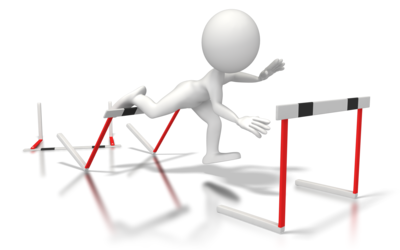Coaching is characterised as a judgement and decision making process. Practitioners and indeed most professionals who work in human performance are de facto coaches of humans. As such, the quest that unites coaches in different sports and practitioners across disciplines is to develop our professional judgement and our ability to make better choices and decisions over time. There is no endpoint to this journey and so the need to continually hone our judgement and decision making applies irrespective of what stage we are might be at in our career. That said, the question of how we best develop these skills for practitioners at the start of their career versus catering for these aspects in continuing professional development thereafter will likely require different solutions.
Marshalling the Mind Under Stress
High stakes and heightened emotions are characteristic of competitive sport, particularly at the highest level. For those who operate in elite and professional sport the presence of stress seems ubiquitous. Coaches and athletes alike regularly face high pressure scenarios where there is a great deal of expectation and much riding on the outcome. Anticipation of an important event, such as a big game, major competition, or selection trials naturally inspire a host of feelings, thoughts, and emotions, ranging from excitement to anxiety and even dread, sometimes simultaneously! In this post we explore how we can equip ourselves and help our athletes to meet the psychological and emotional challenges we will inevitably face on the journey.
Emotional Aptitude in Athlete Preparation
Emotion has traditionally been viewed as something to be suppressed. The logic goes that as leaders and people in positions of authority we should be detached and act ‘without emotion’. If somebody is described as ‘emotional’ generally this is construed as a bad thing; when we become ‘emotional’ the implication is that we are no longer being rational or we are not capable of reason. Conventional wisdom advocates we avoid an emotional response or making emotional decisions. In contrast to these established views, more recent study in this area demonstrates that emotion is in fact integral to reasoning, decision making, guiding our behaviour, and our ability to relate to others. Emotional intelligence is accordingly becoming recognised as being at least as important as more established forms of intelligence. Indeed we increasingly hear commentators proclaim that ‘EQ trumps IQ’. In this latest Informed Blog we delve into the role of emotion in coaching and our work with athletes, and explore what aptitudes we need to possess in this area as leaders, coaches, and practitioners.
Informed Shorts: Making New and Better Mistakes
As the saying goes, there is no success without struggle. The fear of making mistakes can become disabling, particularly if our aim is to try something new or different. So perhaps we need to to reframe how we think about making errors to avoid being too constrained by the desire to not get it wrong. The quest to be creative and innovative in our problem solving necessitates having the freedom to try new and different things. This principle applies whether we are seeking to explore new questions, or find different solutions to existing questions.
Informed Shorts: 'Meta Abilities' for Coaches, Practitioners and Athletes
In this second ‘Informed Short’ we explore the concept of meta-abilities, and unpack the superpowers that we can harness to enhance our practice in a variety of realms as coaches and practitioners in sport, and educate our athletes to make use to these tools for themselves. We can define meta-abilities as ‘higher order’ skills. A defining characteristic of meta-abilities is that they effectively determine how well we are able to make use of our other capabilities.









